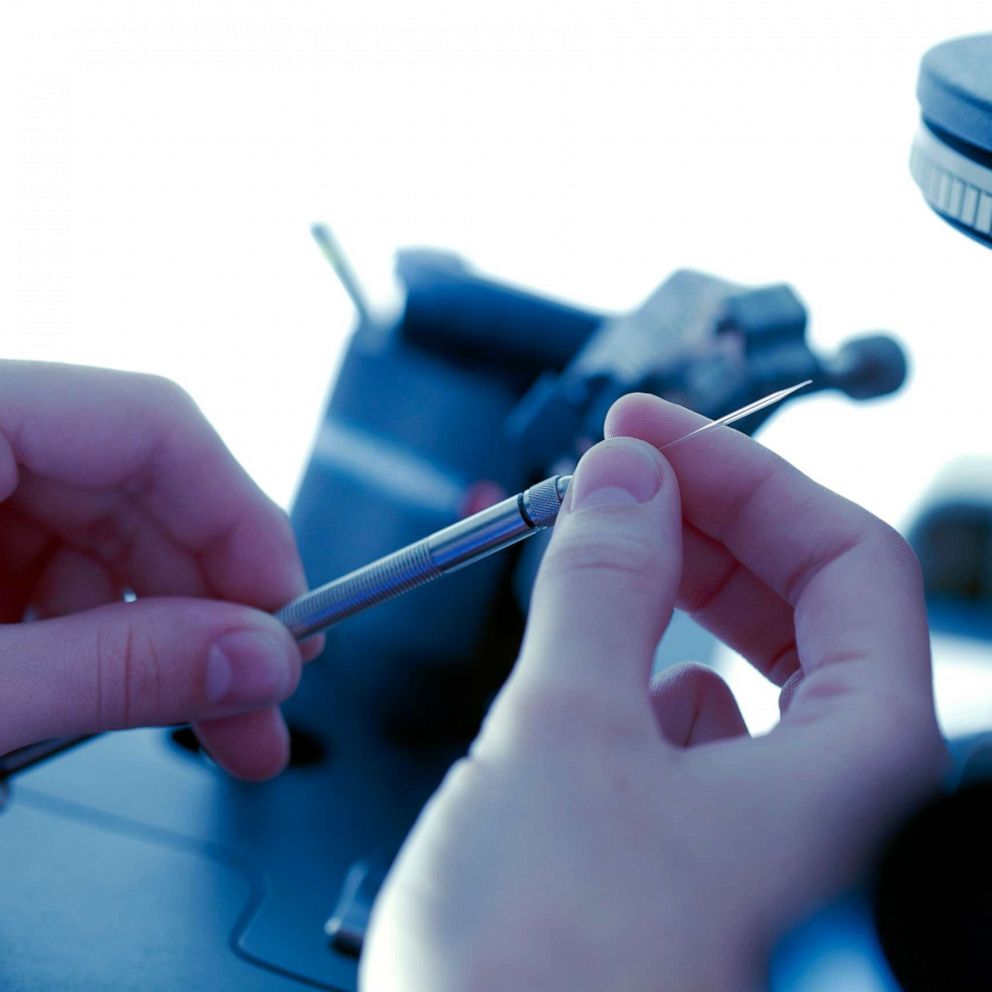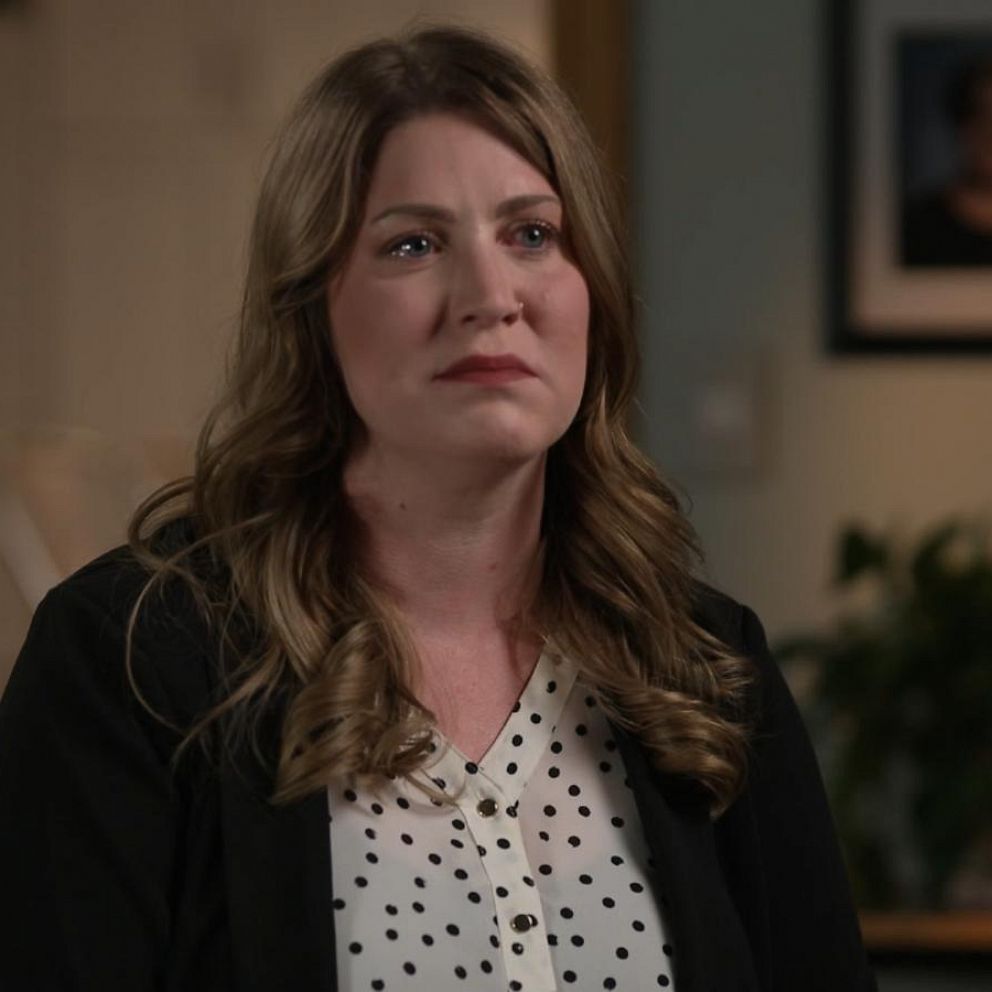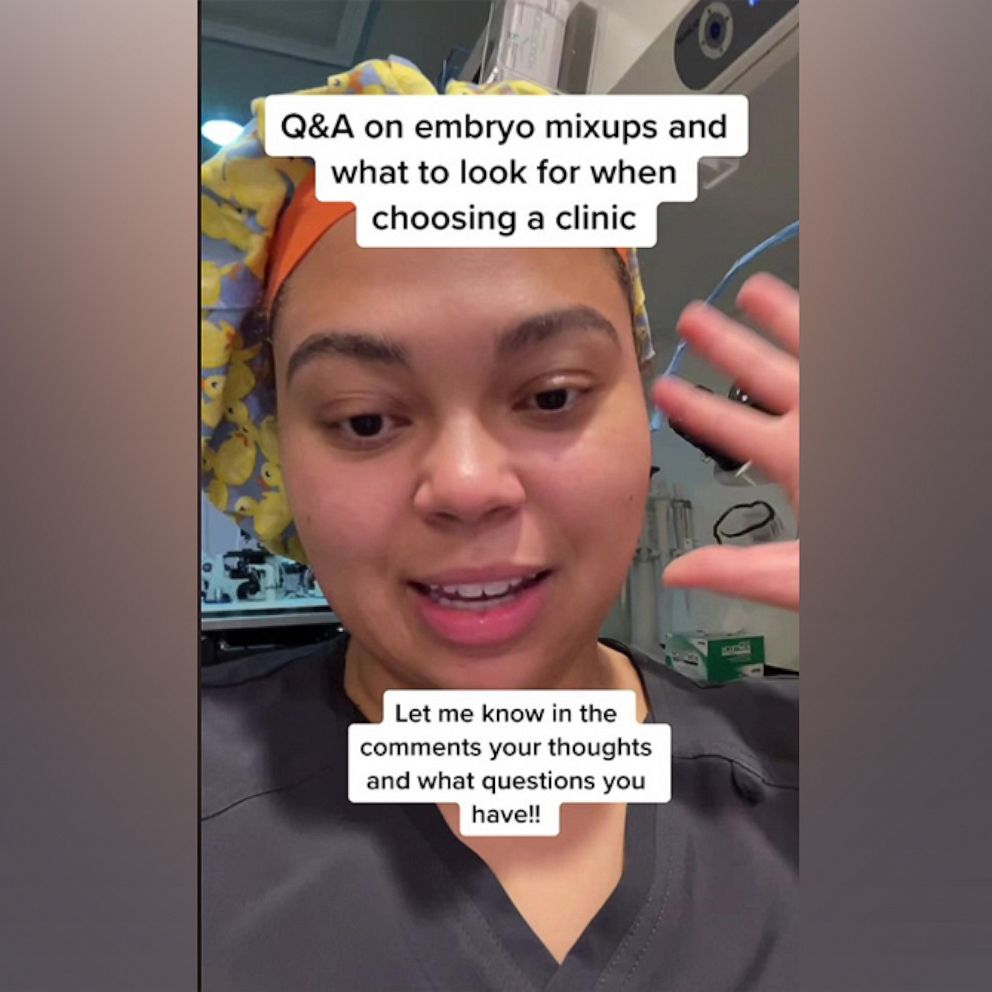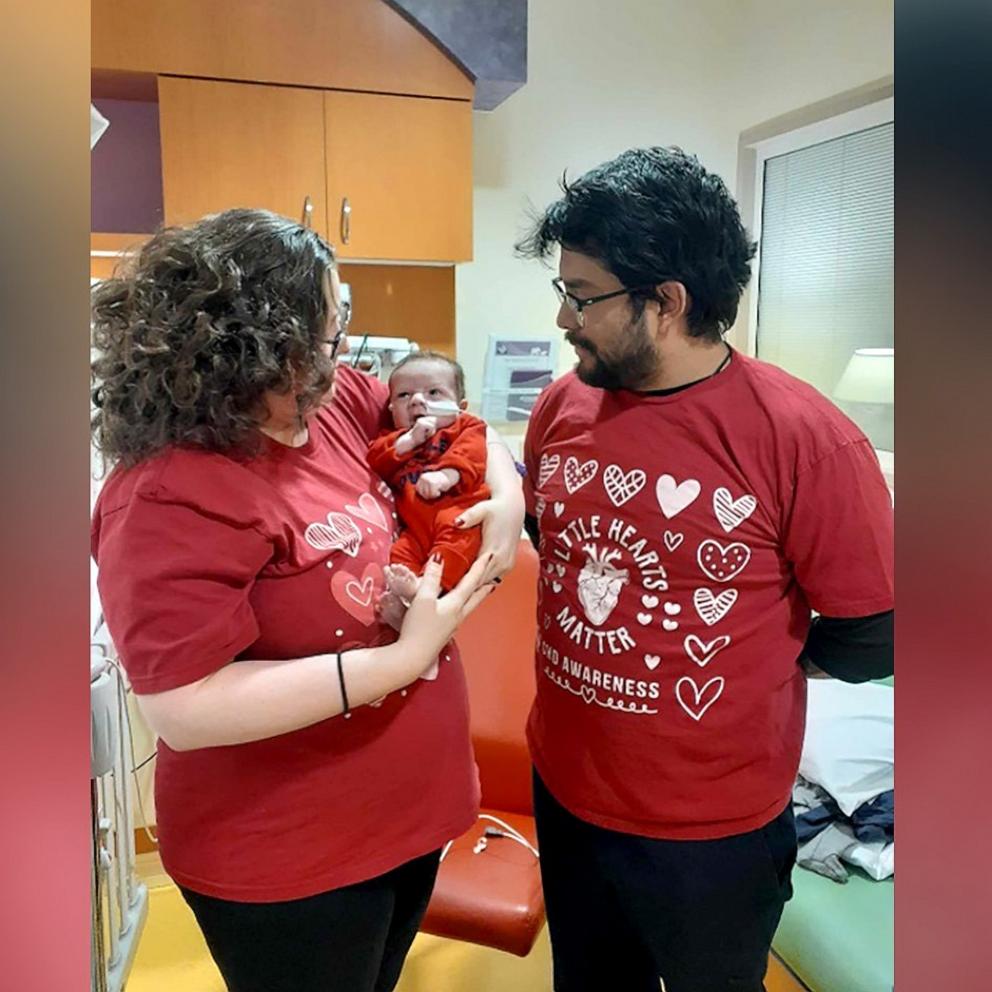Couple sues fertility clinic alleging wife was impregnated with embryo with deadly cancer gene
A couple has filed a lawsuit against a California-based fertility clinic alleging the clinic transplanted an embryo with a cancer mutation during in vitro fertilization, despite the couple specifically cautioning against it.
Melissa and Jason Diaz allege in their lawsuit, filed this week in Los Angeles, that the fertility clinic they used, HRC Fertility, has a "tragic pattern" of using genetic material like eggs, sperm and embryos "in a manner contrary to its patients' instructions" and concealed material information from its customers.
The Diazes claim that, in their case, less than one year after their son was born, they discovered he had the CDH1 mutation for hereditary diffuse gastric cancer, a genetic disease that increases the risk for a specific form of stomach cancer known as diffuse gastric cancer, according to the National Institutes of Health.
Five years ago, in 2018, Jason Diaz, then 32, was diagnosed with diffuse gastric cancer and had to undergo chemotherapy, followed by a gastrectomy, or stomach-removal surgery. Genetic testing later confirmed that Jason Diaz, who has a family history of gastric cancer, carried the CDH1 mutation, according to the lawsuit.
Jason Diaz said in a news conference Wednesday that he and his wife specifically chose to undergo IVF to have children in order to have testing that would help them avoid passing the CDH1 mutation to their child.
"I wouldn't want anyone on earth to experience this type of pain and now I will be forced to watch my own son, my own flesh and blood, go through this after Melissa and I worked so hard to protect him," Jason Diaz said. "Every day my heart is hurting for my baby boy, knowing the pain and challenges he has ahead of him."
The Diazes say they told the clinic and the doctor named in the lawsuit, HRC Fertility and reproductive endocrinologist Dr. Bradford A. Kolb, that they had chosen IVF to prevent having a child with the CDH1 mutation. According to the lawsuit, the couple also had their embryos screened for the BRCA-1 breast cancer mutation, which Melissa Diaz carries.

"Dr. Kolb knew from the time of his first visit with them, on December 12, 2018, that they intended to avoid passing on this rare mutation for stomach cancer," the lawsuit states. "Jason and Melissa’s genetic counselor sent reports regarding testing for the specific mutations directly to Dr. Kolb in 2019."
The couple claim in the lawsuit that Melissa Diaz had her eggs retrieved in 2020, and those eggs were used to create embryos that were tested for the CDH1 and BRCA-1 genes.
In August 2020, according to the lawsuit, Kolb transferred one embryo that did not have either mutation, but that pregnancy ended in a miscarriage.
In January 2021, Melissa Diaz underwent a second embryo transfer, which resulted in the birth of her son. The Diazes were told that embryo did not have the CDH1 gene, when records later showed that it did, according to the lawsuit.
"HRC [Fertility] told us that we had one male embryo that had my BRCA-1 mutation and not the stomach cancer mutation," Melissa Diaz said in the news conference Wednesday. "That embryo was going to be our plan B because the BRACA mutation causes breast and ovarian cancer, so the likelihood of it negatively impacting a boy was significantly less than a girl."
She continued, "So in January 2021, we informed HRC that we wanted to proceed with the male embryo that HRC told us only had the BRCA-1 mutation."

The couple claim in the lawsuit that they discovered the alleged error last July, when Melissa Diaz received a copy of her embryo report as they prepared for another embryo transfer for a second child.
"To her horror, Melissa also recognized the first embryo -- clearly designated as carrying the mutant allele for hereditary diffuse gastric cancer -- as the embryo transferred on January 8, 2021," the lawsuit states. "Embryo #1 had become her beloved infant son."
The Diazes claim in the lawsuit that HRC Fertility later presented them with "falsified records" that covered up handwritten notes showing which embryo had been transferred.
"HRC Fertility's falsified records from October 2022 are evidence of HRC Fertility's knowledge of and intent to hide its misconduct," the lawsuit states.
The lawsuit also states that HRC Fertility later provided the records that included the handwritten notes in December 2022.
The Diazes say they have simultaneously filed an arbitration claim regarding the wrongful transfer of the embryo.
The lawsuit announced this week is aimed at what is described in the complaint as "HRC's fraudulent concealment of material information to its customers -- more particularly, the fact that HRC Fertility has a long history of misusing its customers' biological material, in direct contradiction to its customers' instructions."
"Moreover, it concealed that its processes and procedures are insufficient to prevent such grave errors," the lawsuit states. "Had it made such disclosures, Jason and Melissa never would have entrusted HRC Fertility and Doctor Kolb with their genetic material."
The Diazes are suing for monetary damages and injunctive relief and are seeking a trial by jury, according to the lawsuit.
In addition to HRC Fertility and the couple's medical provider, Kolb, one additional HRC Fertility employee, identified as the clinic's IVF coordinator, is also named in the lawsuit.
HRC Fertility told ABC News in a statement it "stands by the professionalism and expertise of our medical staff."
"At HRC Fertility, our mission is to provide world-class care to all our patients struggling with parenthood. The family planning journey requires many difficult choices. We take all of our patients' choices and concerns very seriously and are committed to providing the highest quality of care," the statement said. "We deeply empathize with this family's situation. However, the patients associated with the case sought genetic testing and genetic counseling outside of HRC Fertility, and with an outside party; they wished to have a male embryo transferred, which we carried out according to the family's explicit wishes and in accordance with the highest level of care."
"At HRC Fertility, our mission is to provide quality and compassionate care to all our patients struggling with parenthood and we understand that family planning requires many difficult choices," the statement continued. "We offer a variety of fertility procedures so all families, regardless of challenges, can have the opportunity to become parents. We have successfully helped thousands of individuals, couples and families become loving parents, including the patients involved in this story."
"We also stand by the professionalism and expertise of our medical staff and pride ourselves on adhering to the highest standards for patient care, patient records, results, and testing at all our locations," the statement added. "Since 1988, we have remained dedicated to helping hopeful parents build families through assisted reproductive technology, compassion, expertise, innovation, cutting-edge research and personalized care."

Melissa Diaz said Wednesday she and her husband are hopeful they will have a second child, but will be on guard more through the process.
"I'm very scared and nervous to go through it again to try to have a second baby, but this time, I will ask my questions. I will double check," she said. "It's heartbreaking that it had to come to this, but just be aware of what's going on with your own body, what they're trying to do with your body."






